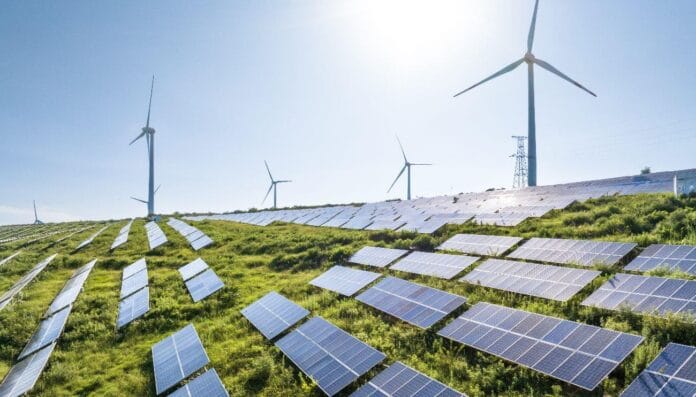Global investments in the energy transition reached a new record of USD 2 point 4 trillion in 2024.
This represents a twenty percent increase compared to the average annual levels of 2022 and 2023. About one third of this amount went to renewable energy technologies, bringing total renewable energy investment to USD 807 billion.
However, despite this milestone, the growth rate of renewable investments slowed sharply. Annual investments rose by only seven point three percent in 2024, compared to thirty two percent the previous year, according to a new report published by the International Renewable Energy Agency and the Climate Policy Initiative.
The report titled Global Landscape of Energy Transition Finance 2025 was released ahead of the United Nations Climate Conference COP Thirty in Belem Brazil. It aims to support global finance discussions by tracking investments in renewable technologies and their supply chains, and by analysing regional patterns as well as sources of finance.
Key findings from the report include the following.
Ninety six percent of renewable energy investments went to the power sector, continuing a long standing trend.
Global investment in solar photovoltaic technology reached a record USD 554 billion in 2024, an increase of forty nine percent.
Investment in renewable power, grids and battery storage surpassed investment in fossil fuels in 2024, even though fossil fuel spending is rising.
Investment in energy transition technologies grew overall, but ninety percent of this investment remained concentrated in advanced economies and China, leaving emerging and developing countries at a disadvantage.
The report states that investments in the energy transition continue to rise but not fast enough to meet the global target of tripling renewable energy capacity by 2030. Although funding for renewables is increasing, it remains heavily concentrated in the most advanced economies. The report emphasises that achieving global goals requires significantly higher financial support for emerging and developing countries.
The report also shows that advanced and major economies can rely on domestic financial resources to fund their energy transitions. In contrast, lower income countries depend heavily on external support due to underdeveloped financial markets, limited fiscal space, high capital costs and debt vulnerabilities.
Globally, nearly half of all investment in 2023 came through debt, most of it at market rates. The rest was invested through equity, while grants represented less than one percent. The urgent need to mobilise investment combined with a shortage of low cost debt and grant based finance risks worsening the debt burdens of developing countries.
The report further highlights that investments in energy transition supply chains and manufacturing remain essential but highly concentrated. China accounted for eighty percent of global investment in manufacturing facilities for solar, wind, battery and hydrogen technologies between 2018 and 2024. New factories are beginning to emerge outside advanced economies and China, helping to spread the economic and energy security benefits of the transition to other developing countries.
Overall, global investment in factories producing solar, wind, battery and hydrogen technologies fell by twenty one percent to USD 102 billion in 2024, largely because of a sharp decline in investment in solar photovoltaic manufacturing. In contrast, investment in battery factories nearly doubled to USD 74 billion, driven by increasing demand for energy storage in power grids, electric vehicles and data centres.
The report stresses that foreign direct investment through joint ventures, technology partnerships and knowledge sharing will be vital for strengthening international cooperation and expanding manufacturing capacity for energy transition technologies in emerging and developing countries. It also notes that dedicated policies are needed to ensure these activities are conducted in a socially and environmentally responsible way and that their benefits are shared equitably.

